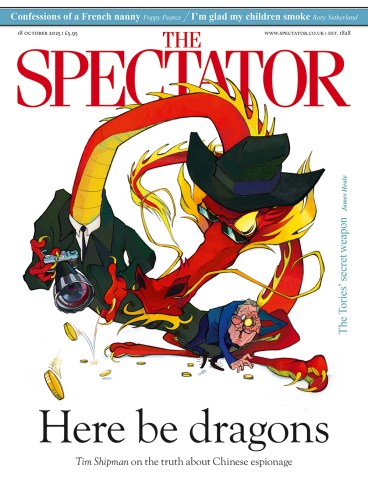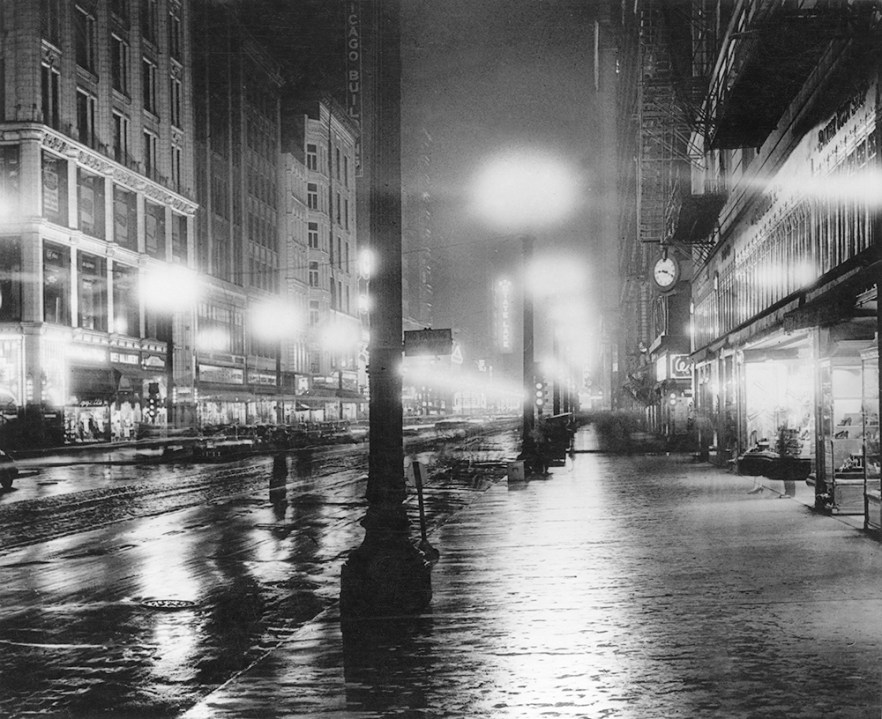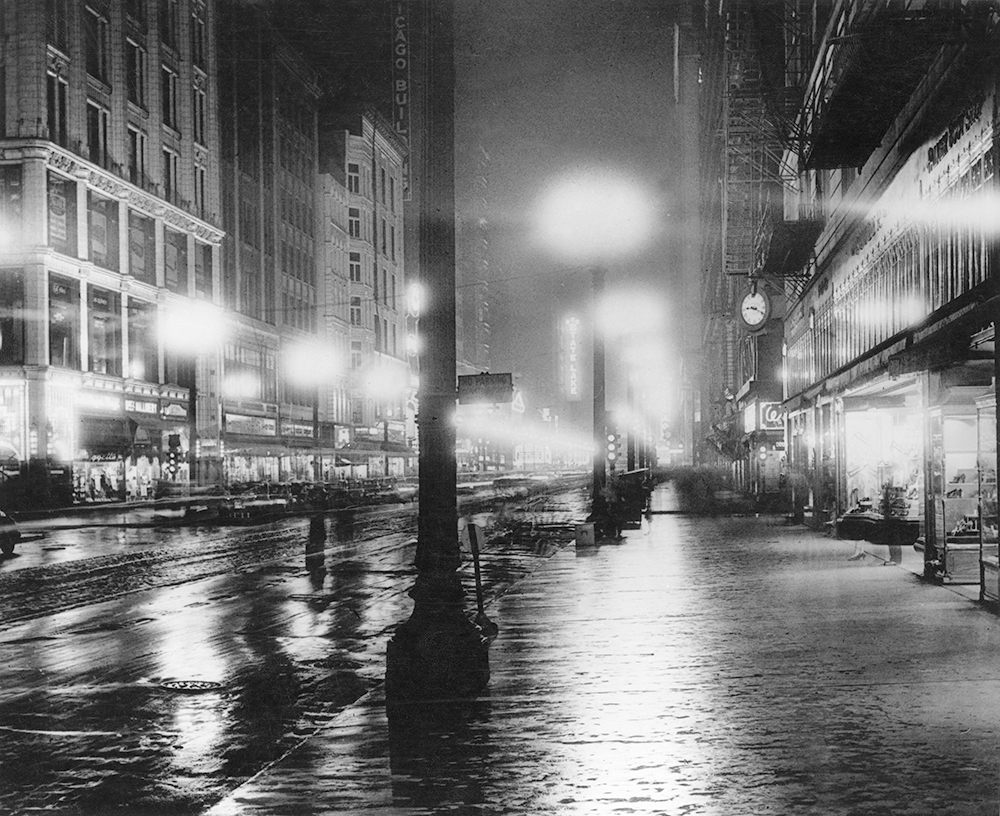
Thomas Pynchon is so well known for being out of the public eye that he often seems to be hiding in plain sight, much like Edgar Allan Poe’s ‘purloined letter’. He is famous for avoiding the camera and the few extant photos of him – especially one from his high school yearbook – are paraded at every mention of his name or one of his books, usually accompanied by a rude remark about his ‘rabbity front teeth’. Many of his efforts to escape the limelight, such as sending the rumpled ‘Professor’ Irwin Corey to accept on his behalf the 1974 National Book Award for Gravity’s Rainbow gained him more renown than if he had just shown up and shuffled off with the damn thing himself. He’s been a recurring character on The Simpsons (wearing a paper bag over his cartoon head in order to preserve his anonymity) and he has even agreed to have a non-existent novel attributed to him as a fleeting real-life character in the 1990s cult sitcom The John Larroquette Show.
In fact it’s hard to think of anyone in American life who has been so omnipresent in his absence as Pynchon or, to quote from one of the jazzily syncopated pop tunes that pepper his latest, very funny novel:
Ubiquitous… you’re out, ev-
-v’rywhere, you’re
ubiquitous… like the
airwaves, through the air, it’s
iniquitous… that you
never seem to care…
Like the character in this song, the less Pynchon seems to care for attention the more he seems to get it.
For the past 50 years, readers and critics have either loved him vociferously or not at all. In my own readerly development, I spent my first few decades dismissing him almost as stoically as he dismissed publicity. I never finished V, and I went on to not-finish Gravity’s Rainbow at least three times. While I did finish The Crying of Lot 49 more than once, this was only because it was short enough to assign in modern novel courses, where (I was often surprised to learn) many of my students enjoyed it more than I did.
Then, in the early 1990s, I was intrigued enough by Pynchon’s sudden reappearance after almost two decades to try him again. Vineland (1990) turned out to be a very modestly sized novel about grass-heads and head-cases hiding out in northern California (including a zombie-like horde of TV addicts known as the Thanatoids). I couldn’t help reading it as an attempt by someone who had loved 1960s American counter-culture to make peace with the recently escalating horrors of the Reagan administration. In Vineland, Pynchon seemed to be suggesting that the only problem with long-haired, ‘tuned out’ Americans was that there weren’t enough of them.
The novel burned with affection for all the losers and outcasts who had found alternative ways to establish their familial and creative lives off the beaten paths of the American wilderness. Unlike Pynchon’s more highly regarded earlier novels (dense with overly clever ideas about Maxwell’s demon, baby alligators running loose in the Manhattan sewer system and erotically guided missiles), Vineland actually seemed to care about its central characters, especially its divided nuclear family (Zoyd Wheeler, his daughter Prairie and her errant mother Frenesi). These people weren’t as willing as everybody else to vanish into that good night of Reagan-era economics and cop-loving TV idiocy.
With Vineland Pynchon became one of those rare writers who spoke to the heart of America’s lost radical youth. Over the following decades, he went on to write thousands of wild and woolly scenes, packed with originality, musically entrancing dialogue, bizarre fictional inventions and cultural savvy; and at least three of his subsequent novels may well be the greatest literary art America had in her at the time – including the poorly received Bleeding Edge, the only novel worth reading ‘about’ 9/11 and the vanishing of America into a ‘dark web’ owned and operated by plutocrats. Now, according to Pynchon’s latest, and perhaps last, novel (he turned 88 in May), this vanishing into an international conspiracy of indistinguishable gangsters and mega-billionaires isn’t a new development.
Shadow Ticket offers everything many of us have learned we can’t find anywhere quite so happily as in Pynchon. It’s funny and absorbing. It’s populated by wild characters sporting names such Angie ‘Vumvum’ Voltaggio, the gangland enforcer, and Bruno Airmont, the plutocratic cheese counterfeiter (conspiratorial buddy of the more conventional counterfeiter Al Capone). Last but not least, shambling independently among all these suspects and their confederates, there is Hicks McTaggart – yet another dizzying spin-off of the tough-guy detectives in 1930s films and fiction. As noir as can be, the novel packs loads of genre tropes and isn’t afraid to use them. Hicks is reminiscent of Pynchon’s other hard-boiled protagonists, such as Larry ‘Doc’ Sportello in Inherent Vice or Maxine Tarnow, the disgraced freelance fraud examiner in Bleeding Edge.
Prose isn’t simply a matter of words in Pynchon’s best work. It’s music, and it’s happening right under your feet
Even as a relatively young man, Hicks has already toured the entire range of American corruption, through high school as a strikebreaker for gangsters and plutocrats, eventually finding his way towards a more forgiving sense of politics, guided by his Uncle Lefty, who raised him after his mother ran off with an elephant trainer. He’s also a devoted reader of The Gumshoe’s Manual, where he seeks advice on various professional concerns, such as ‘What if I get teamed up, unwillingly, with somebody who’s off their rocker?’ It’s a perfectly sensible question, since everyone in this novel is either off their rocker or surrounded by so many similar characters that they might as well be.
As in all Pynchon’s best fiction, the sentences bop and spin with the frenetic night life of its characters – especially Hicks, a Lindy-hopping dancer on a mission to swing, and who doesn’t carry whiskey in his hip flask, only hair gel. Even at its most unpredictable, thestory always seems to be veering into unpredictably believable territories, such as this scene at the Tropikus nightclub in a neighbourhood known as ‘the Broadway of Budapest’:
Waitresses in abbreviated sailor-girl getups back and forth with Unicum boilermakers and fruit-heavy house specials in coconut and conch shells, ceramic mermaids with purple Cellophane drinking straws emerging from the tops of their heads, smoke hanging like tropical weather… The band, camouflaged into the scenery here, itching to go Latin all evening, impatient little raps and flourishes among the percussion and brass, apparently misplaced beats in the waltzes and foxtrots till at last helplessly collapsing into a Latin American fanfare, conga drums… claves, güiros, timbales and cowbells…
It’s as if prose isn’t simply a matter of words and punctuation in Pynchon’s best work. It’s music, and it’s happening right under your feet.
Shadow Ticket starts off complicated and then rapidly gets more so with its knot of gangsters, thugs, wacky inventors, spies, cops, political operatives and their accomplices. Very quickly Hicks’s hunt for a vanished cheese heiress – and the instigators of a truck bombing that might be political, criminal, both or neither – develops into an international search for an old friend, hooch-purveyor Stuffy Keegan, who has vanished beneath Lake Michigan in a submarine relic of the Austro–Hungarian Empire. (Of course it couldn’t be just any submarine.) These singular incidents of civic corruption and corporate criminality are soon swallowed up by a network of old political orders submitting to the newly forming fascist ones, until Hicks finds himself cast adrift in the ‘Old World’ of Europe wondering if he’s safer there, or better off back in the bowling-and-beer obsessed ‘New World’ he left behind. The answer, of course, isn’t easy to determine. Nor can it be located in The Gumshoe’s Manual.
Shadow Ticket seems one of Pynchon’s most heartfelt novels. For while Hicks never solves any of the mysteries he confronts, but can only watch them, one by one, get yanked off into the shadows by even more swiftly multiplying mysteries, he does come close to finding his own way through the darkness. There may be hope for the world yet, Hicks seems to conclude – especially if you can keep the future at enough of a distance. And yet it’s only a matter of time before each one of us has to carry our shadow ticket down the long train corridor to have it summarily punched by the shadow conductor.
Let’s just hope that, by the time we get there, the conductor turns out to be as much fun to spend a long transcontinental journey with as Thomas Pynchon.








Comments